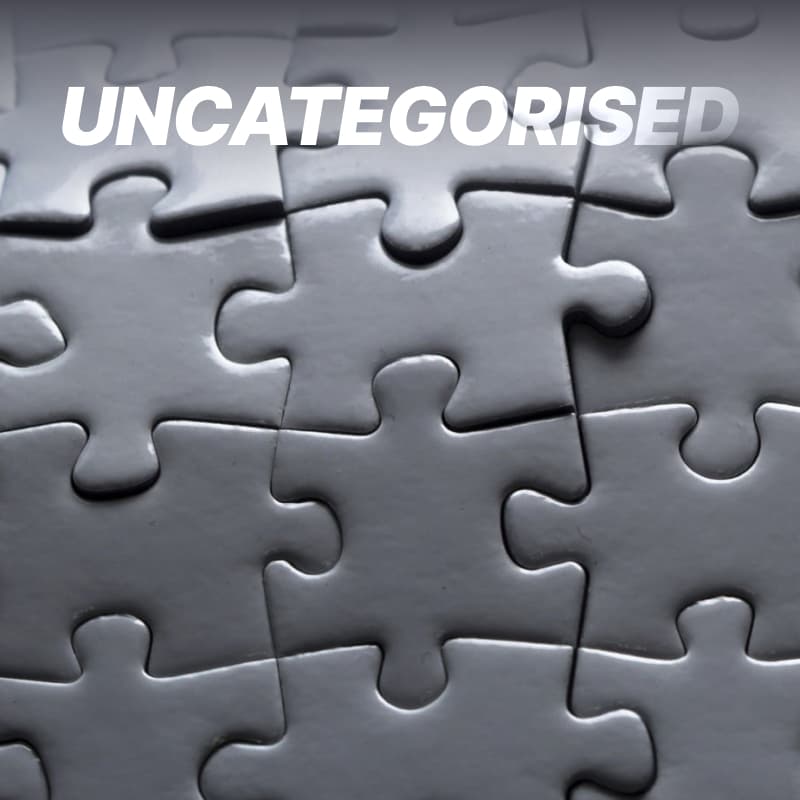In the digital age, securing our website is more crucial than ever. That’s where Secure Sockets Layer (SSL) comes into play. It’s not just about protection; it’s a significant boost for our SEO efforts.
Google has made it clear: SSL is a ranking factor. Websites with SSL certificates often see a noticeable improvement in their search engine rankings.
So, let’s dive into how SSL can be the game-changer for our SEO strategy.
Table of Contents
Key Takeaways
- SSL as a Ranking Factor: Secure Sockets Layer (SSL) is confirmed by Google as a ranking factor. Websites with SSL certificates see improved search engine rankings, which highlights the importance of SSL in SEO strategies.
- Enhancing User Trust and Engagement: SSL certificates play a crucial role in building user trust by displaying a padlock icon in the address bar. This increased security perception leads to higher engagement rates, lower bounce rates, and potentially more conversions, positively impacting SEO.
- Mobile Optimization and Compliance: With the dominance of mobile searches, SSL is vital for mobile optimization and meeting Google’s Mobile-First Indexing requirements. Additionally, SSL helps in complying with data protection regulations, further enhancing SEO through improved user trust and website credibility.
- Implementation of SSL: To implement SSL, select the right type of SSL certificate (DV, OV, or EV) based on your needs, purchase it from a reputable Certificate Authority, set up 301 redirects from HTTP to HTTPS, and ensure all internal and external links are updated to HTTPS to maximize SEO benefits.
- Ongoing SSL Certificate Renewal: Remember to renew SSL certificates regularly to maintain the SEO benefits, user trust, and security they provide. Failure to renew can lead to loss of trust and decreased search engine rankings.
What is Secure Sockets Layer (SSL)?
In the realm of internet security, Secure Sockets Layer, or SSL, stands as a cornerstone. It’s a protocol designed to ensure secure connections between web servers and browsers. Initially, SSL was the brainchild of Netscape, aiming to safeguard online transactions. Today, it’s evolved into a standard security technology.
SSL works by encrypting data transmitted over the internet. This encryption makes it nearly impossible for hackers to intercept and decipher the information. Whether it’s personal data, credit card details, or sensitive information, SSL keeps it safe.
At its core, SSL involves two keys to lock and unlock data. The public key is known openly and helps to encrypt the data. The private key remains confidential, decrypting the data upon its arrival at the intended destination. This duo ensures a secure handshake between the website and the user’s browser, establishing a safe channel.
To recognize a website with SSL, we just need to check the URL. Sites secured with SSL will start with “https://” instead of the standard “http://”. Additionally, a padlock icon appears in the address bar. These signals are immediate indicators of a website’s commitment to security.
Acquiring an SSL certificate is a process that involves validation by a Certificate Authority (CA). The CA verifies the legitimacy of the website seeking the certificate. There are different levels of validation, each providing a distinct degree of trustworthiness.
Businesses and website owners must consider SSL not just for security. It’s also a pillar in establishing trust with customers. In an era where data breaches are common, displaying the padlock icon can significantly enhance user confidence.
Why is SSL important for SEO?
In the world of SEO, Google has officially confirmed SSL as a ranking factor. This marks a significant shift in how websites are evaluated for their search engine rankings. Websites with SSL certificates often see a boost in their rankings compared to those without. This advantage can’t be overlooked, considering the competitive nature of search placements.
SSL certificates also contribute to reducing bounce rates. Visitors are more likely to stay on a secure website, knowing their information is protected. This increased dwell time sends positive signals to search engines, further improving a site’s SEO performance.
Moreover, SSL impacts user trust. When visitors see the padlock icon in the address bar, they’re reassured of their safety. This trust leads to higher engagement rates and, potentially, more conversions. These user behavior metrics play a crucial role in how search engines evaluate and rank websites.
Another point to consider is the “Not Secure” warning in browsers. Websites without SSL certificates trigger this warning when users enter data on a page. This warning can alarm visitors and drastically increase bounce rates, negatively affecting SEO.
Lastly, SSL is vital for mobile optimization. With mobile searches increasingly dominating, Google’s Mobile-First Indexing prioritizes mobile-friendly websites. SSL is a critical component of making a website mobile-friendly, thus influencing its SEO success in the mobile search domain.
By understanding the weight of SSL in SEO, we equip ourselves to make informed decisions that enhance our online presence. The emphasis on security, alongside traditional SEO practices, shapes a holistic approach to building a trustworthy and high-ranking website.
SSL and search engine rankings
Secure Sockets Layer (SSL) certificates play a significant role in improving search engine rankings. It’s widely recognized that Google favors secure websites, meaning those with HTTPS encryption often outperform their HTTP counterparts in search results.
In practice, this can lead to a notable improvement in a website’s visibility online. Google has been transparent about its preference for HTTPS, considering it a key factor in its ranking algorithm since 2014.
We’ve observed that websites equipped with SSL certificates experience a boost in credibility among users and search engines alike. This increase in trust can translate into higher engagement rates.
Moreover, the security badge, or the padlock icon, that comes with SSL encryption reassures users of the website’s safety. As a result, they’re more likely to stay longer and explore, contributing positively to dwell time, another metric search engines use to gauge a site’s value.
Increased bounce rates are often the consequence of a lack of SSL certification. Users tend to leave sites that browsers mark as ‘Not Secure’.
It’s in our best interest to secure our site with SSL not only to protect our visitors but also to bolster our position in search engine rankings.
Integration of SSL is straightforward but essential for any serious website owner looking to enhance their SEO efforts and overall online visibility.
Remember, SSL certificates need to be renewed regularly to maintain these benefits. Not doing so can reverse gains in trust and ranking.
By prioritizing SSL encryption, we’re not just securing data; we’re also paving the way for better search engine recognition.
Benefits of SSL for SEO
When we consider the myriad ways that SSL can enhance a website’s SEO, it becomes clear that the investment in security pays off in visibility. Google’s algorithm favors HTTPS websites, ranking them higher than their non-secure counterparts. This means that by securing our site with SSL, we’re also boosting its position in search engine results.
SSL certificates not only improve ranking but also build trust with visitors. Seeing the padlock icon in the address bar reassures users that their data is safe. This increased trust leads to longer dwell times and lower bounce rates, both of which are positive signals to search engines.
Moreover, SSL is essential for optimizing our websites for mobile users. With the rise of mobile browsing, Google’s Mobile-First Indexing gives priority to sites that offer a secure and user-friendly experience on mobile devices. Ensuring our site is secure with SSL is a step towards better mobile optimization and, subsequently, better rankings.
Another key benefit is the enhanced privacy and security SSL certificates provide. By encrypting data transmitted between the user’s browser and our website, SSL protects sensitive information from being intercepted. This not only secures user data but also prevents tampering and attacks that could harm our site’s reputation and SEO.
Lastly, leveraging SSL certificates empowers us to comply with regulatory requirements. Many regions mandate the protection of user data, and SSL encryption helps meet these legal obligations. Failure to comply can result in penalties and a loss of user trust, negatively impacting SEO.
By prioritizing SSL encryption, we’re not just securing our website. We’re enhancing its SEO performance, building trust with our users, and ensuring compliance with data protection regulations. Each of these factors plays a crucial role in maintaining and improving our site’s visibility and ranking in search engine results.
Implementing SSL on your website
Securing your website with SSL is a critical step in enhancing its SEO performance. The first step in this process is choosing the right SSL certificate for your needs. There are several types of SSL certificates, including:
- Domain Validation (DV)
- Organization Validation (OV)
- Extended Validation (EV)
Each serves a different purpose and provides varied levels of validation and trust. For most small to medium-sized businesses, a DV certificate is sufficient and the quickest to obtain. OV and EV certificates offer higher levels of trust but require more extensive validation.
Once you’ve selected the appropriate SSL certificate, the next step is purchasing it from a reputable Certificate Authority (CA). It’s vital to choose a CA that is well recognized and trusted by browsers to prevent any trust issues with your website visitors.
After purchasing, you’ll need to generate a Certificate Signing Request (CSR) on your web server. This request contains your server’s public key and your company’s information. It’s used by the CA to create your SSL certificate.
When you receive your SSL certificate, install it on your web server. The installation process varies depending on your server’s software, so it’s crucial to follow the specific instructions provided by your hosting provider or software documentation.
The final step is configuring your site to always use HTTPS. This involves setting up 301 redirects from HTTP to HTTPS versions of your pages. It prevents security warnings and ensures that users and search engines see the secure version of your site.
Implementing HSTS (HTTP Strict Transport Security) is also a good practice. It tells browsers to always use HTTPS when accessing your site, adding an extra layer of security.
After implementing SSL, verify your setup using online tools provided by SSL vendors or third-party services. They check for common errors and ensure that your SSL certificate is correctly installed and recognized by browsers.
It’s also important to update all your website’s external and internal links to use HTTPS. This action helps in maintaining link integrity and ensuring that your site’s SEO benefits are fully realized.
Conclusion
Securing our websites with SSL is no longer an option but a necessity for boosting SEO performance. By carefully selecting the right SSL certificate and ensuring its proper implementation, we’re not just enhancing site security but also signaling to search engines our commitment to providing a safe browsing experience. Remember, the journey doesn’t end with installation. Regularly verifying our SSL setup and keeping our links updated to HTTPS are crucial steps to leverage the full SEO benefits. Let’s prioritize SSL to not only protect our users but also to solidify our standing in search engine rankings.
Frequently Asked Questions
What is SSL and why is it important for websites?
SSL (Secure Sockets Layer) is a security protocol that encrypts information exchanged between a website and its visitors, ensuring data privacy and security. It’s essential for websites to protect user data, build trust, and improve SEO rankings.
How does SSL improve SEO performance?
Search engines favor HTTPS-encrypted websites, considering them secure. SSL certificates can boost a website’s SEO performance by increasing its credibility and search engine ranking, enhancing user trust and website legitimacy.
What are the different types of SSL certificates?
There are three main types: Domain Validated (DV) SSL, Organization Validated (OV) SSL, and Extended Validation (EV) SSL certificates. Each offers different levels of validation and trust, with EV SSL providing the highest.
How can I implement SSL on my website?
To implement SSL, choose the correct certificate type, purchase it from a reputable Certificate Authority (CA), generate a Certificate Signing Request (CSR), and install the SSL certificate on your web server.
What is a Certificate Authority (CA)?
A Certificate Authority (CA) is an entity that issues digital certificates (like SSL certificates) to organizations or individuals, verifying the certificate holder’s identity and enabling secure communication over the internet.
Why do I need to configure my site to always use HTTPS?
Configuring your site to use HTTPS ensures all data transmitted between your web server and visitors’ browsers is encrypted, enhancing security. It’s crucial for consumer trust and mandatory for maintaining high SEO rankings.
What is HSTS and why should I implement it?
HTTP Strict Transport Security (HSTS) is a web security policy mechanism that helps protect websites against man-in-the-middle attacks by ensuring browsers only connect to the website using HTTPS. Implementing HSTS further secures your site and boosts SEO.
How do I update my website links to use HTTPS?
To update your website links to HTTPS, find all instances of “http://” in your site’s source code and manually replace them with “https://”. This ensures all internal links are secure, contributing to a safer user experience and better SEO.
How do I verify my SSL setup is correct?
Verifying your SSL setup involves checking that the SSL certificate is correctly installed, not expired, and issued by a reputable CA. You can use online SSL checking tools or browser functionalities to confirm your SSL status.
Why is updating links important for SEO after SSL implementation?
Updating all website links to use HTTPS is crucial post-SSL implementation because it prevents mixed content issues, directs traffic correctly, and ensures browsers recognize your website as secure. This practice positively impacts your SEO ranking.






















Responses (0 )